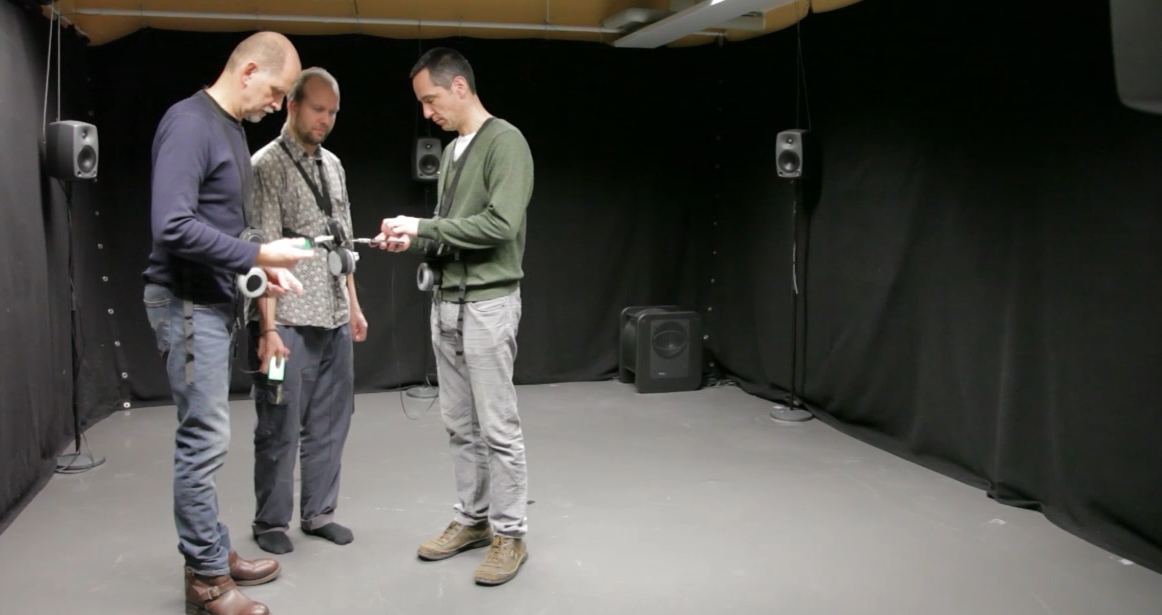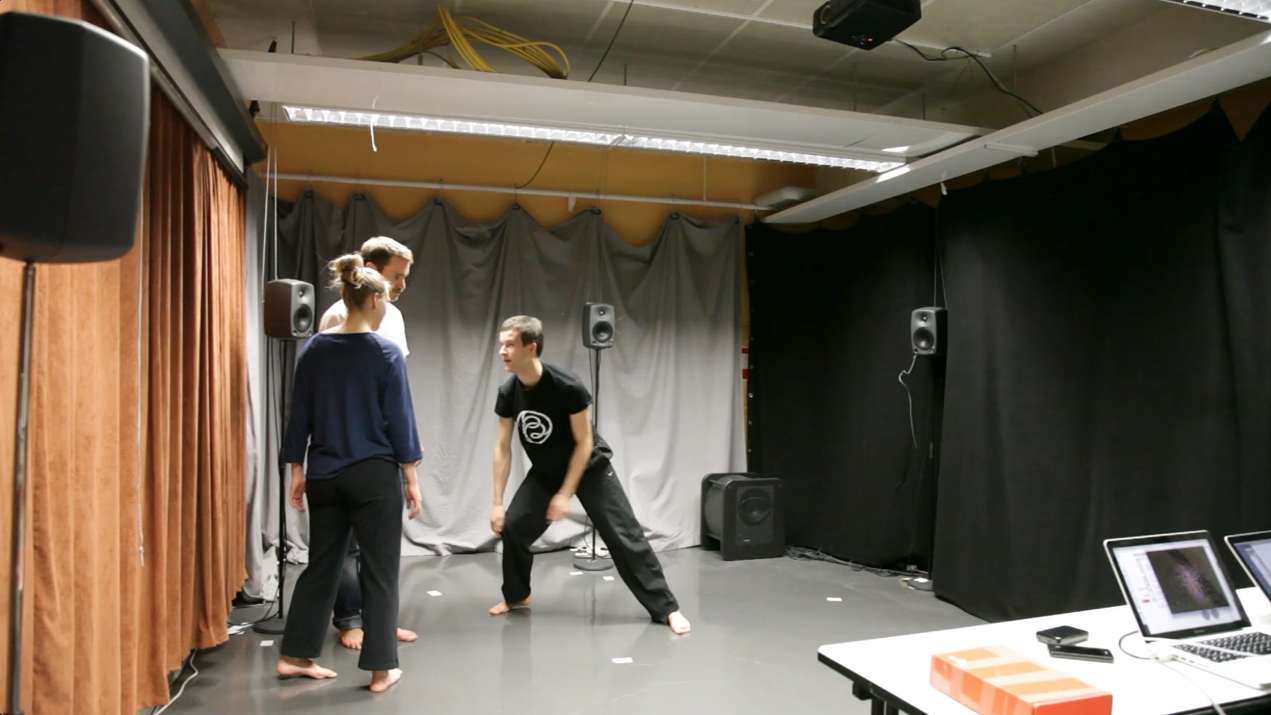PESI – The Notion of Participative and Enacting Sonic Interaction
The project deals with the social aspect of participation and musicianship dynamics in collective music performance. The PESI research proposes a novel collaborative environment using mobile phones as tangible and expressive musical instruments, in parallel with a spatial system. This extended system incorporates the mobile instruments and motion tracking technology to create an environment where musicians' social interactions contribute to the sonic outcome.

2013 / DMI-P-I project
Embodied in Physical and Social Environment
PESI system is designed for co-located collaboration and provides embodied and spatial opportunities for musical exploration. PESI accounts for forms of interaction with digital technologies that are embedded in physical and social environments.
We implemented the PESI system in two parts – on the body and in space. On-body component consists of mobile phones and portable speakers. Performers use the mobile devices to control their individual instruments. Each one wears a pair speakers on his/her body that are directly connected to the mobile device. In-space, the multi-user tracking and central management unit provides a robust tracking and analysis system that adapts quickly and reliably to any changes in a dynamic, group improvisation performance. It receives a continuous stream of data from the rest of the components. It uses this data to extract actions and to modulate the individual sound outputs. This allows a new layer of sound to be presented based on the social relations among the performers.
Location, Distance and Coordination
Our previous study showed that novel strategies in the development of new interfaces with extended systems enable players to become more aware of their social interaction. The main emphasis of this study was to understand more about bodily interaction among participants, specially in relation to their location, distance and coordination as a group, and using these parameters as sound producing events. The results of the analysis show the suitability of our approach but also the need for iterating on our design on the basis of the perspectives brought forth by the users.
The user-test jam session with musicians; Ilkka Niemeläinen, Antti Ikonen and James Andean.
2013 / Goldsmiths, University of London
A Process of Participatory Sense-Making
The composition is a playful exploration of contemporary theory of social interaction, investigating the idea that social interactions have their own internal dynamics, and are emergent objects that feedback into the behaviours of the individuals involved, imbuing their actions with meaning and signification through a process of participatory sense-making.
PESI In-Hands performance

Exploration of social and space with three dancers.
The Free-improv Set for Piano
The free-improv set for piano is one of the practical experimentations that we have been exploring with the PESI system. Improvisation investigates the specific affordances of the in-space and on-body components and utilizes these interactions in a duo performance with Sebastian Lexer and Koray Tahiroğlu.
The free-improv set for piano by Sebastian Lexer and Koray Tahiroğlu performed in Goldsmiths, University of London in April 2013
No More Together
The composition No More Together, by Adam Parkinson, utilises a simple text score; a set of instructions designed to facilitate but also playfully problematise interactions between the performers. The composition responds to the specific affordances of the performance system which sonifies the spatial and social interactions between the performers. The relative distance between performers is used to control granular processing of the sounds in the in-space system, allowing performers to transform their owns sounds and those of the other performers, and creating feedback loops between spatial, social and musical interactions.
No More Together, composed by Adam Parkinson; performed in Goldsmiths, University of London in April 2013 by Baptiste Caramiaux, Alessandro Altavilla and Koray Tahiroğlu
PESI software system with OnBody and InSpace components https://version.aalto.fi/gitlab/sopi/PESI_InSpace
https://version.aalto.fi/gitlab/sopi/PESI_OnBody
PESI ToolKit version 0.01 (2011-2012)
PESI_integrationStation.zip
MobileMusicSourceDocumentation.pdf
AudioSynthesisTools.zip
